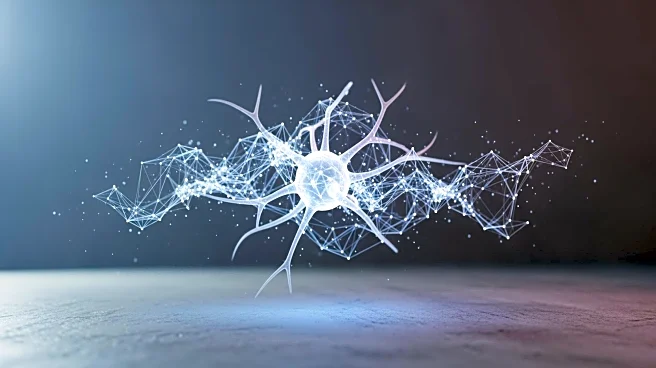What is the story about?
What's Happening?
Recent research has explored the integration of humanized ROBO1 chimeric antigen receptor (CAR) into natural killer (NK) cells, targeting non-small cell lung cancer (NSCLC). NSCLC remains a significant clinical challenge due to limited treatment options. The study focused on the expression of ROBO1 in lung squamous cell carcinoma and the role of PD-1 in NK cell tumor-killing efficacy. Researchers constructed hROBO1-CAR-NK-92 cells and inserted the hROBO1-CAR sequence at the PD-1 locus. The modified NK cells demonstrated enhanced long-term tumor-killing ability and cytokine secretion, significantly inhibiting tumor growth in mouse models. This approach suggests ROBO1 as a promising target for CAR-NK therapy in NSCLC, offering a potential new strategy for treating solid tumors.
Why It's Important?
The development of effective treatments for NSCLC is crucial, as it is one of the most common and deadly forms of cancer worldwide. The integration of ROBO1 CAR into NK cells represents a novel therapeutic strategy that could improve outcomes for patients with NSCLC. By enhancing the tumor-killing capabilities of NK cells, this approach may offer a more effective treatment option, potentially reducing mortality rates associated with lung cancer. The study's findings could pave the way for further research and development in CAR-NK therapies, potentially benefiting a broader range of solid tumor types.
What's Next?
Further research and clinical trials are likely needed to validate the efficacy and safety of ROBO1 CAR-modified NK cells in human patients. If successful, this approach could be integrated into existing treatment protocols for NSCLC, offering a new avenue for combating this aggressive cancer. Additionally, the exploration of ROBO1 as a target may lead to the development of similar therapies for other types of solid tumors, expanding the impact of this research beyond lung cancer.
Beyond the Headlines
The study highlights the potential of genetic modifications in enhancing the therapeutic capabilities of immune cells. This approach raises ethical considerations regarding genetic engineering and its implications for future cancer treatments. The long-term effects and safety of such modifications will need careful evaluation, ensuring that the benefits outweigh any potential risks.














